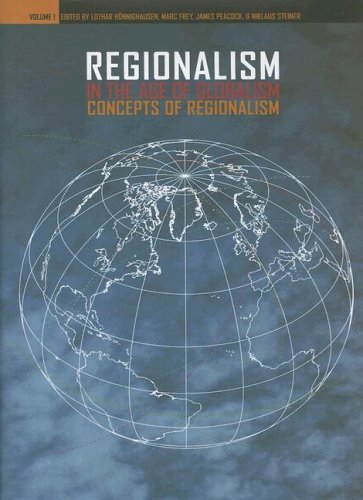Edited by James L. Peacock (NHC Fellow, 2003–04), Niklaus Steiner, Lothar Hönnighausen, and Marc Frey

From the publisher’s description:
In an age of rapid globalization, regionalism might seem a notion better suited to the nineteenth century than the early twenty-first. Yet, regionalism has actually flourished in the last half-century. An increasing number of conflicts are based on territorial identities, while new regionally based political, economic, cultural, and religious groupings have emerged.
These two volumes examine regionalism in today's rapidly shrinking world. The first volume, Concepts of Regionalism, showcases the wide range of theories and methods being applied to regionalism in the humanities and social sciences. Many common themes emerge, most importantly that regions are social and cultural constructs. The second volume, Forms of Regionalism, presents case studies that explore regionalism in literature, governmental policy, architecture, and other fields in areas as diverse as the American South, Pacific Northwest, Eastern Europe, and the Canadian North. The international contributors represent disciplines including folklore, history, anthropology, linguistics, literature, geography, sociology, and political science.
Subjects
Anthropology / Political Science / Globalization / Regionalism /Peacock, James L. (NHC Fellow, 2003–04), ed. Regionalism in the Age of Globalism. Vol. 1, Concepts of Regionalism. Edited by James L. Peacock, Niklaus Steiner, Lothar Hönnighausen, and Marc Frey. Madison: University of Wisconsin Press, Max Kade Institute for German-American Studies, Center for the Study of Upper Midwestern Cultures, University of Wisconsin-Madison, 2004.